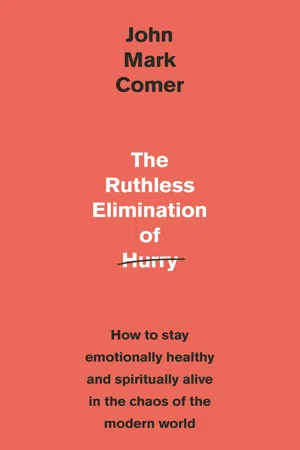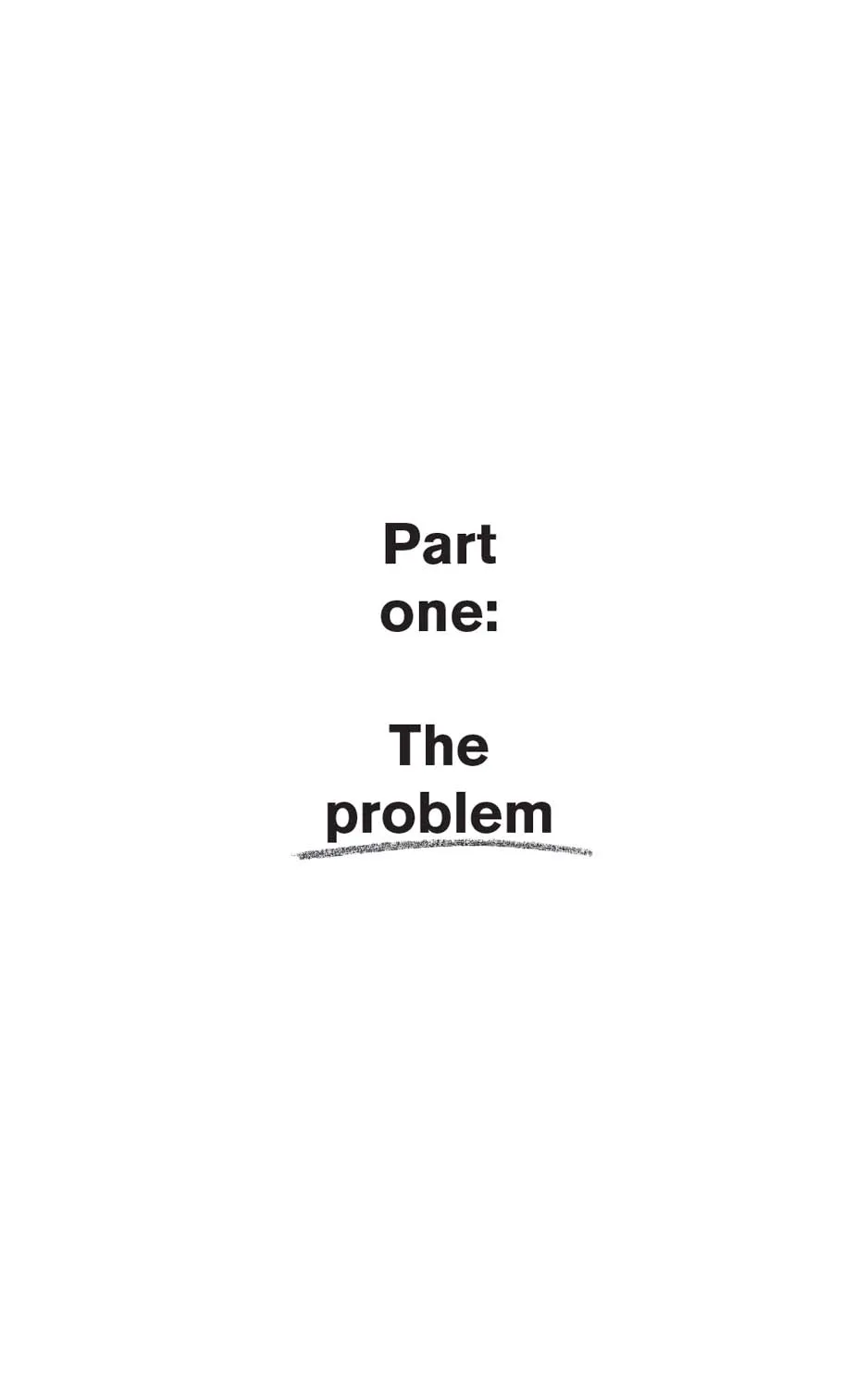![]()
![]()
Hurry: the great enemy of spiritual life
Last week I had lunch with my mentor John. Okay, confession: he’s not actually my mentor; he’s way out of my league, but we regularly have lunch and I ask a barrage of questions about life, notepad open. John is the kind of person you meet and immediately think, I want to be like that when I grow up. He’s blisteringly smart but more—wise. Yet he never comes off remotely pretentious or stuck up. Instead, he’s joyful, easygoing, comfortable in his own skin, a raging success (but not in that annoying celebrity way), kind, curious, present to you and the moment … Basically, he’s a lot like how I imagine Jesus.1
John (last name Ortberg) happens to be a pastor and writer in California who was mentored by another hero of mine, Dallas Willard. If you don’t know that name, you’re welcome.2 Willard was a philosopher at the University of Southern California but is best known outside academia as a teacher of the way of Jesus. More than any teacher outside the library of Scripture, his writings have shaped the way I follow—or as he would say, apprentice under—Jesus.3 All that to say, John was a mentee of Willard for over twenty years, until Willard’s death in 2013.
I never got the chance to meet Willard, so the first time John and I sat down in Menlo Park, I immediately started pumping him for stories. We hit gold.
Here’s one I just can’t stop thinking about:
John calls up Dallas to ask for advice. It’s the late ’90s, and at the time John was working at Willow Creek Community Church in Chicago, one of the most influential churches in the world. John himself is a well-known teacher and best-selling author—the kind of guy you figure pretty much has apprenticeship to Jesus down. But behind the scenes he felt like he was getting sucked into the vortex of megachurch insanity.
I could relate.
So he calls up Willard and asks, “What do I need to do to become the me I want to be?”4
There’s a long silence on the other end of the line …
According to John, “With Willard there’s always a long silence on the other end of the line.”
Then: “You must ruthlessly eliminate hurry from your life.”
Can we just hit stop for a minute and agree, that’s brilliant?
Thanks …
John then scribbles that line down in his journal—sadly this was before Twitter; otherwise that would have broken the internet. Then he asks, “Okay, what else?”
Another long silence …
Willard: “There is nothing else. Hurry is the great enemy of spiritual life in our day. You must ruthlessly eliminate hurry from your life.”
End of story.5
When I first heard that, I felt a deep resonance with reality. Hurry is the root problem underneath so many of the symptoms of toxicity in our world.
And yet Willard’s reply is not what I would expect. I live in one of the most secular, progressive cities in America, but if you were to ask me, What is the great challenge to your spiritual life in Portland? I’m not sure what I’d say.
Most likely I’d say it’s modernity or postmodernity or liberal theology or the popularization of the prosperity gospel or the redefinition of sexuality and marriage or the erasure of gender or internet porn or the millions of questions people have about violence in the Old Testament or the fall of celebrity pastors or Donald Trump. I don’t know.
How would you answer that question?
I bet very few of us would default to “hurry” as our answer.
But read the Bible: Satan doesn’t show up as a demon with a pitchfork and gravelly smoker voice or as Will Ferrell with an electric guitar and fire on Saturday Night Live. He’s far more intelligent than we give him credit for. Today, you’re far more likely to run into the enemy in the form of an alert on your phone while you’re reading your Bible or a multiday Netflix binge or a full-on dopamine addiction to Instagram or a Saturday morning at the office or another soccer game on a Sunday or commitment after commitment after commitment in a life of speed.
Corrie ten Boom once said that if the devil can’t make you sin, he’ll make you busy. There’s truth in that. Both sin and busyness have the exact same effect—they cut off your connection to God, to other people, and even to your own soul.
The famous psychologist Carl Jung had this little saying:
Jung, by the way, was the psychologist who developed the framework of the introvert and extrovert personality types and whose work later became the basis for the Myers-Briggs Type Indicator test. (INTJ, anybody?) Suffice to say: he knew what he was talking about.
Recently I was running the vision of our church by my therapist, who is this Jesus-loving, ubersmart PhD. Our dream was to re-architect our communities around apprenticeship to Jesus. (That feels so odd to write because what else would we be doing as a church?) He loved it but kept saying the same thing: “The number one problem you will face is time. People are just too busy to live emotionally healthy and spiritually rich and vibrant lives.”
What do people normally answer when you ask the customary, “How are you?”
“Oh, good—just busy.”
Pay attention and you’ll find this answer everywhere—across ethnicity, gender, stage of life, even class. College students are busy. Young parents are busy. Empty nesters living on a golf course are busy. CEOs are busy; so are baristas and part-time nannies. Americans are busy, Kiwis are busy, Germans are busy—we’re all busy.
Granted, there is a healthy kind of busyness where your life is full with things that matter, not wasted on empty leisure or trivial pursuits. By that definition Jesus himself was busy. The problem isn’t when you have a lot to do; it’s when you have too much to do and the only way to keep the quota up is to hurry.
That kind of busy is what has us all reeling.
Michael Zigarelli from the Charleston Southern University School of Business conducted the Obstacles to Growth Survey of over twenty thousand Christians across the globe and identified busyness as a major distraction from spiritual life. Listen carefully to his hypothesis:
And pastors, by the way, are the worst. He rated busyness in my profession right up there with lawyers and doctors.
I mean, not me. Other pastors …
As the Finnish proverb so eloquently quips, “God did not create hurry.”
This new speed of life isn’t Christian; it’s anti-Christ. Think about it: What has the highest value in Christ’s kingdom economy? Easy: love. Jesus made that crystal clear. He said the greatest command in all of the Torah was to “love the Lord your God with all your heart and with all your soul … and with all your strength,” followed only by, “love your neighbor as yourself.”7 But love is painfully time consuming. All parents know this, as do all lovers and most long-term friends.
Hurry and love are incompatible. All my worst moments as a father, a husband, and a pastor, even as a human being, are when I’m in a hurry—late for an appointment, behind on my unrealistic to-do list, trying to cram too much into my day. I ooze anger, tension, a critical nagging—the antitheses of love. If you don’t believe me, next time you’re trying to get your type B wife and three young, easily distracted children out of the house and you’re running late (a subject on which I have a wealth of experience), just pay attention to how you relate to them. Does it look and feel like love? Or is it far more in the vein of agitation, anger, a biting comment, a rough glare? Hurry and love are oil and water: they simply do not mix.
Hence, in the apostle Paul’s definition of love, the first descriptor is “patient.”8
There’s a reason people talk about “walking” with God, not “running” with God. It’s because God is love.
In his book Three Mile an Hour God, the late Japanese theologian Kosuke Koyama put this language around it:
In our culture slow is a pejorative. When somebody has a low IQ, we dub him or her slow. When the service at a restaurant is lousy, we call it slow. When a movie is boring, again, we complain that it’s slow. Case in point, Merriam-Webster: “mentally dull: stupid: naturally inert or sluggish: lacking in readiness, promptness, or willingness.”10
The message is clear: slow is bad; fast is good.
But in the upside-down kingdom, our value system is turned on its head: hurry is of the devil; slow is of Jesus, because Jesus is what love looks like in flesh and blood.
The same is true for joy and peace—two of the other core realities of the kingdom. Love, joy, and peace are the triumvirate at the heart of Jesus’s kingdom vision. All three are more than just emotions; they are overall conditions of the heart. They aren’t just pleasant feelings; they are the kinds of people we become through our apprenticeship to Jesus, who embodies all three ad infinitum.
And all three are incompatible with hurry.
Think of joy. All the spiritual masters from inside and outside the Jesus tradition agree on this one (as do secular psychologists, mindfulness experts, etc.): if there’s a secret to happiness, it’s simple—presence to the moment. The more present we are to the now, the more joy we tap into.
And peace? Need I even make a case? Think of when you’re in a hurry for your next event, running behind: Do you feel the deep shalom of God in your soul? A grounded, present sense of calm and well-being?
To restate: love, joy, and peace are at the heart o...

